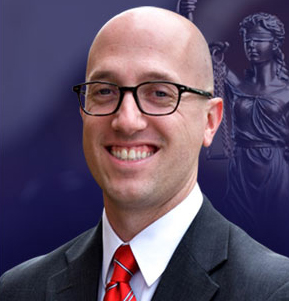
ABOUT OUR ESTATE PLANNING PRACTICE
An estate refers to everything you own – your car, home, savings, life insurance policy, and anything else that comprises or contributes to your net worth. An estate also includes any debts and obligations you may have, like a mortgage or outstanding credit card balances. When you pass away, your estate is distributed to your beneficiaries according to the terms of your pre-established will and testament.
If you die without a will, North Carolina’s intestacy laws will take place. With such important items at stake, it’s crucial to gather an experienced Charlotte estate planning attorney on your side now who can help you plan for the future and protect your assets.
We understand that estate planning is an important but often overlooked task. Many people put off estate planning because they don’t want to consider their own mortality. Others believe that they don’t have enough assets to warrant estate planning. However, everyone can benefit from having a well-drafted estate plan in place. Estate planning can help you achieve peace of mind knowing that your loved ones will be taken care of after you’re gone. We go the extra mile to ensure that our client’s estate planning needs are met and that their wishes are carried out.
What Does Estate Planning Involve?
Estate planning is the crucial activity of anticipating and arranging for the management and disposal of your assets during life and after death. An estate plan can help you:
- Ensure that your property is distributed according to your wishes
- Minimize estate taxes and expenses
- Maximize the value of your estate by using trusts and other strategies
- Make sure that your minor children are taken care of if something happens to you
- Appoint someone to manage your affairs if you become incapacitated
- Plan for long-term care if you become incapacitated
- Make end-of-life decisions in advance
What Are the Different Types of Estate Plans in NC?
There are many different types of estate plans, and the best plan for you will depend on your circumstances. The most common types of estate plans include:
- Wills: A will is a legal document that sets forth your wishes for how your property should be dispersed after death. They also can appoint a guardian for your minor children and name an executor to carry out specific tasks after your death, such as probating your will and distributing your property.
- Trusts: A trust is a legal entity that can be created to hold and manage property for the benefit of another person. They can help avoid probate, minimize estate taxes, and provide for the care of minor children or incapacitated adults.
- Durable Power of Attorney: This legally allows you to appoint a designed member of your family unit or a trusted friend to handle your financial affairs if you become incapacitated. This includes paying your bills, managing your bank accounts, and investing your money.
- Medical Power of Attorney: A medical power of attorney is a legal document that allows you to appoint someone you trust with your medical decisions on your behalf if you become incapacitated. This could be decisions about life-sustaining treatment or end-of-life care.
What Items Should You Include in Your Estate Plan?
When considering what items to include in your estate plan, you should determine your goals. Once clear on what to achieve, you can work with an experienced Charlotte, NC estate planning attorney to create a detailed plan that will honor those future objectives. Some of the most common items that are included in estate plans are:
- Residential property: This can include your primary residence, vacation home, or rental property.
- Personal belongings: You may want to specify who should receive specific items, such as jewelry, art, or furniture.
- Financial accounts: This can include bank accounts, investment accounts, and retirement accounts.
- Business interests: If you own a business, you will need to make arrangements for the continued operation of the business after your death.
- Life insurance: A life insurance policy can be used to provide financial security for your loved ones after your death.
You can ultimately choose to include anything in your estate plan that you want. The most important thing is to make sure that your wishes are clearly stated and that your estate plan is properly executed.
Common Obstacles to Estate Planning
Procrastination is one of the most common obstacles to estate planning. Many people put off creating an estate plan because they think they do not have enough assets or because they think they are too young to need one. However, estate planning is not just for the wealthy or the elderly. Life is filled with unpredictability; to best be prepared, it is important to have an estate plan in place no matter what your age or circumstances.
Confusion regarding the process is another common obstacle to estate planning. Estate planning can be complex, and there are many different options to consider. However, an experienced Charlotte estate planning attorney can help you navigate the process and make sure that your estate plan meets your unique needs.
Finally, some people are reluctant to create an estate plan because they do not want to think about their mortality. However, estate planning is not solely about death – it’s about preserving your legacy and ensuring that your loved ones are taken care of after you die.
Estate planning is an important process that everyone should go through. Each of our clients receives personalized attention and guidance throughout the estate planning process that sets their future up for success. We would be happy to answer any questions you have about estate planning.


